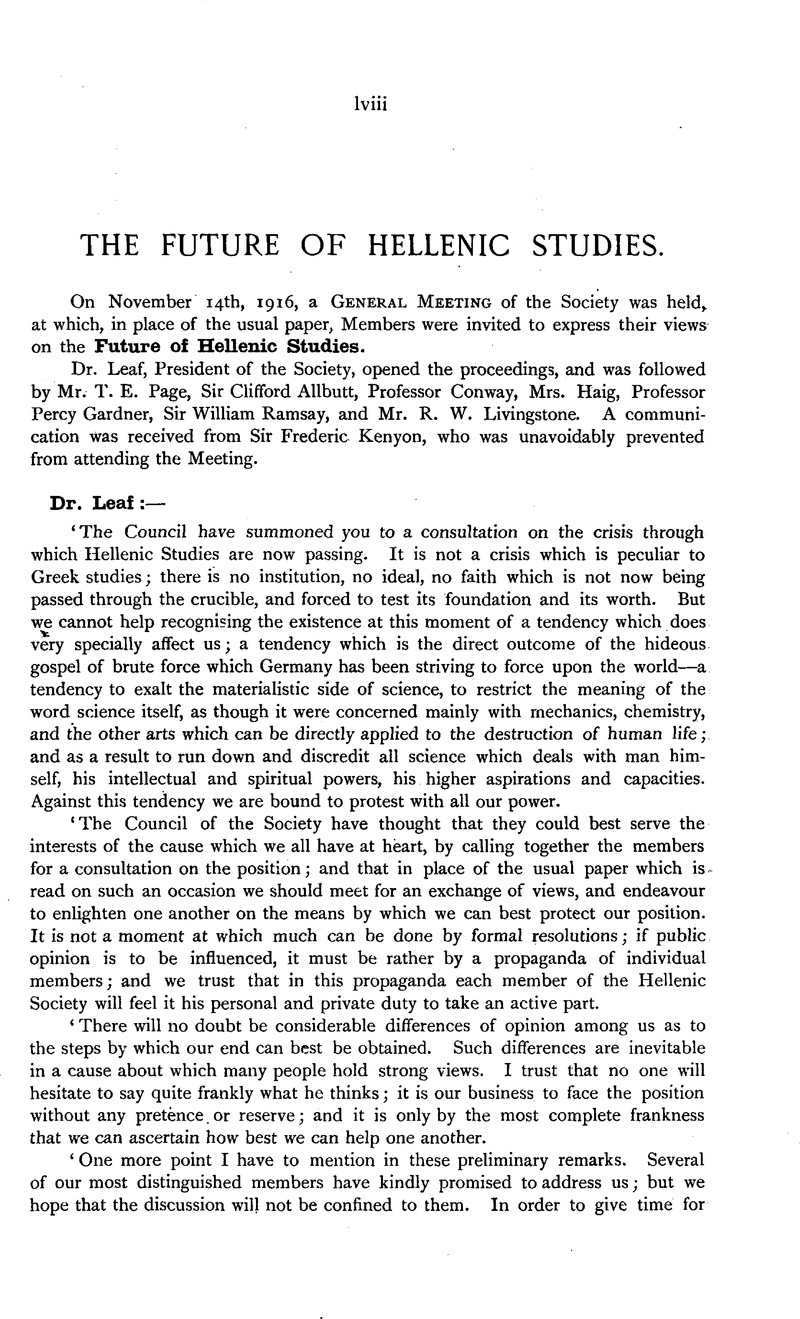No CrossRef data available.
Published online by Cambridge University Press: 23 December 2013

page lxiii note 1 In Greek, no doubt, we are faced by our sad ignorance of its pronunciation; all we know being that ancient Greek could not have been pronounced with the modern reckless disregard of quantity. Then the use of the fine and intimate limbs of speech will have built up the corresponding language centres in the brain. But on many points such as these I have so recently occupied many columns of The Times (Educ. Suppl. Sept. 7, Oct. 5, Nov. 16), that it would not become me to dwell at greater length. (See also Proc. Class. Assoc. 1906).
page lxv note 1 The contents of the following paragraph were not actually delivered by the speaker, but they were in his mind; and as without them what he said is liable to some misconception he has sought permission to append these sentences here.
page lxviii note 1 See below, p. lxix.